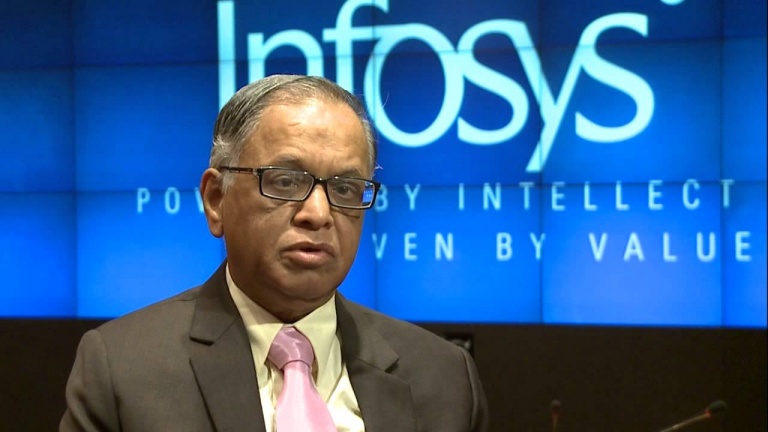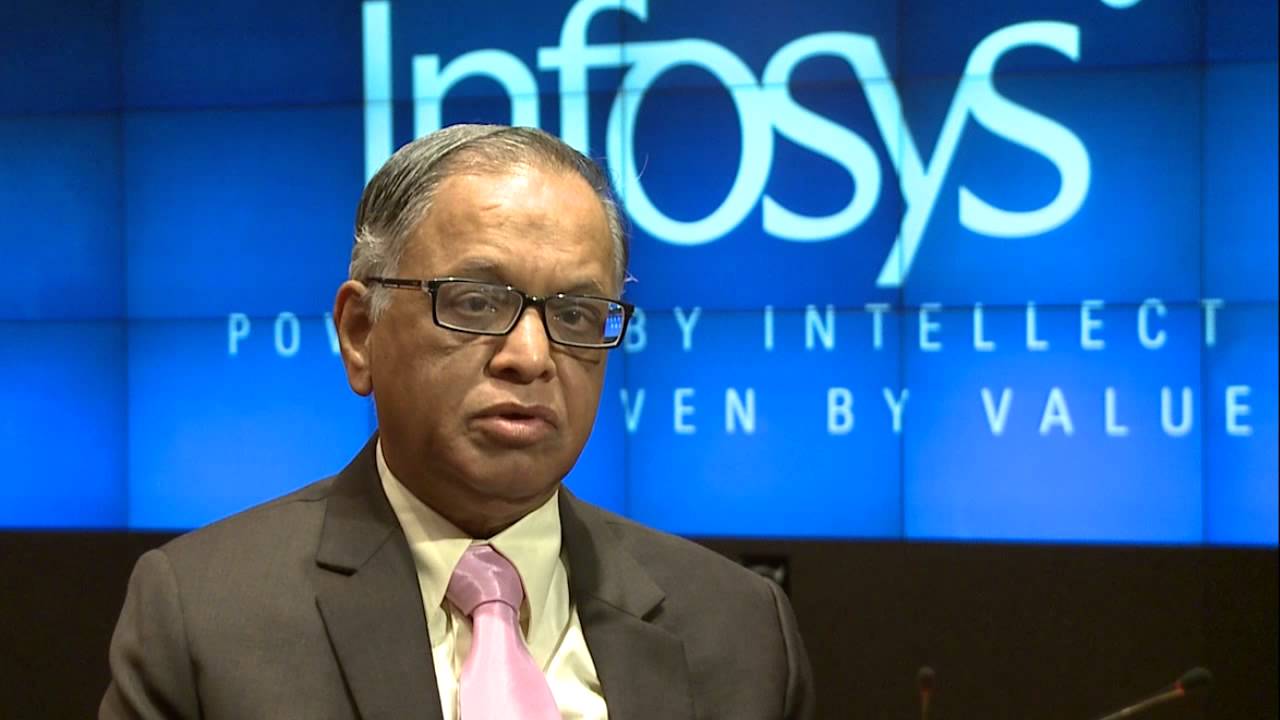ANALYSIS
Narayana Murthy, in a recent interview emphasized the role of the business elite in initiating equality in India, but in an age where State-Corporate partnership is becoming the dominant discourse – how viable and empirically justified is this argument?
Priyanka Yadav
Narayana Murthy in an interview with Indian Express said that in order to reduce the rising income inequality it is important for India’s rich, powerful and the elite to take responsibility and demonstrate that rising inequality in the country can be reduced to ensure peace and harmony in the society or risk violence.

He further went on to add “When does violence pervade in a society? When people lose hope. And who is responsible for hope? It is the rich, the powerful and the elite who can enhance hope. Therefore, it is their responsibility to keep hope alive. The day, the rich, the powerful and the elite do not take responsibility for this and for ensuring peace, you will have violence. Leaders of capitalism too in the country need to exercise self-restraint in granting benefits to themselves or their friends. If this does not happen, you won’t have peace and harmony in a society. In some cases it has not happened. My hope is that good sense will prevail.” ( Source : The Indian Express)
The Inherent Paradox of Murthy’s Argument
Is this really possible? Politicians, bureaucrats and corporate leaders sitting together to think as to how to accelerate growth? Can the ruling elite in India sit together with the business elite to think about accelerating growth and minimising rising inequality in today’s scenario?
Ruling elite and the business elite once did work together for the welfare of the state during the era of early independence, in order to contribute towards nation building. The nexus between the ruling elite and business elite aimed towards improvising the social and economic conditions of the citizens but today after 70 years of independence the reality is completely different.
The ruling elite and business elite no longer work together for the welfare of the economy they rather work together to further their interest, their interest has shifted from the welfare of the masses to the welfare of themselves, in that process wealth is created and generated, by the elites and for the elites hence the concentration of wealth happens at the top level and remains in the economic circles of the elite to serve the purpose of the elites.
Given this context it is quite unlikely that the ruling class and business class would think about disintegrating wealth for welfare purpose. The fact that the current government’s political image has been questioned time and again by the number of corruption cases coming forward moreover no legal action has been successful on the accused as the ruling elite themselves do not wish to bring the business elite into probe and hamper their sphere of economic assistance.
Businessmen like Vijya Mallaya, Nirav Modi and now Mehul Choksi quite easily were able to dust off their hands from huge corruption charges and this makes the fact pretty evident that they have sustained political support from the existing government.
The Enforcement Directorate (ED) in June filed a charge sheet against Mallya, accusing him of money laundering and duping a consortium of nationalised banks. The ED that probes money laundering cases filed its first charge sheet against the businessman in 2017 in the IDBI Bank NSE 0.26 % loan fraud case. The agency has so far attached his assets estimated to be worth Rs. 9,890 crore. Mallya fled India in March 2016 as banks chased him for the repayments. Currently, he is facing extradition proceedings in London court.
Billionaire jeweller Nirav Modi was involved in the fraud case where he allegedly acquired fraudulent letters of undertaking from one of the branches of Punjab National Bank for overseas credit from other Indian lenders leading to a scam of nearly 11,4000 crore rupees, the enforcement directorate filed a case of money laundering against Modi but just before the CBI started raiding his property he reportedly flew from the country and was traced in an apartment in Manhattan, New York.
Mehul Choksi, the Managing Director of ‘Gitanjali Gems’ and also the maternal uncle of Nirav Modi, has come under the radar of various investigating agencies, following the Enforcement Directorate (ED) filing a case against the latter for conducting fraudulent transactions from the Punjab National Bank.
The ED’s move came in response to two FIRs filed by the Punjab National Bank against Modi and his associates, for cheating it off a little over Rs 11,000 crore.
Choksi is alleged to have been hiding in Antigua and Barbuda and recently he claimed in his plea that the jails “violate human rights conditions,” said a report in The Indian Express. He also claimed that a media trial was on against him that might influence the judicial system.
Decoding a Nexus: Political and Business Elite Join Hands
One can sense a huge political lobby backing the tycoons of the business class. The very fact that they were able to do away with the legal procedures of the Indian Judicial System and could seek asylum outside the country becomes a self- explanatory situation. The nexus between the ruling class and business class is predominant here. In a nation where frauds of the business class equipped with capital can be shielded, where remaining outside the scanner of law despite huge scams seems to be rampant and when activists and scholars who have been working on the ground for the marginalised and poor are arrested overnight and termed “Urban Naxals” with no proven fault of theirs- the situation presents in front of us a rather questionable behaviour of the ruling elite.
In a scenario like this how can one expect the politicians, bureaucrats and corporate leaders to sit together and formulate a policy for job creation and contribute in lowering rising income inequality? How have we allowed those who contribute extensively to India’s improper distribution of wealth to formulate its welfare schemes?
Narayana Murthy in his interview with The Indian Express further went on to add
“It is in this context that the government — both at the federal level and in states — and the bureaucracy ought to end the tyranny of factory inspectors, eliminate conflicts around GST and other issues and reduce the time frame for a host of approvals to a fortnight to boost entrepreneurship.”
How much of a conducive and viable framework is this, is a question that really needs serious contemplation. In a country like India where the working class population is doubling every year and the labour market growing with the absence of proper regulated labour laws, the sole focus on furthering entrepreneurship without sustained and people centric state imitated work would lead to the creation of a vicious cycle of accumulation of wealth at the top while rendering the bottom of the financial pyramid impoverished and disillusioned.














